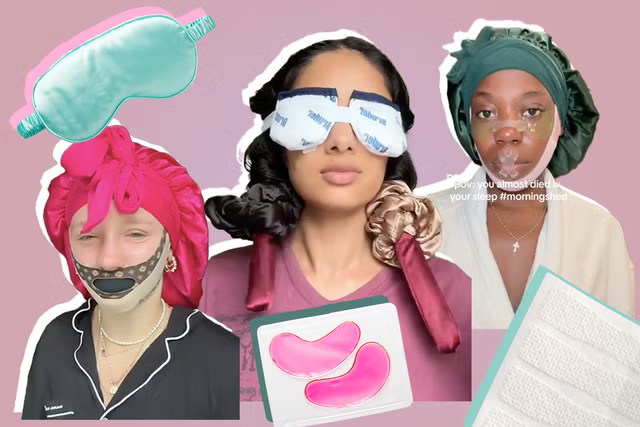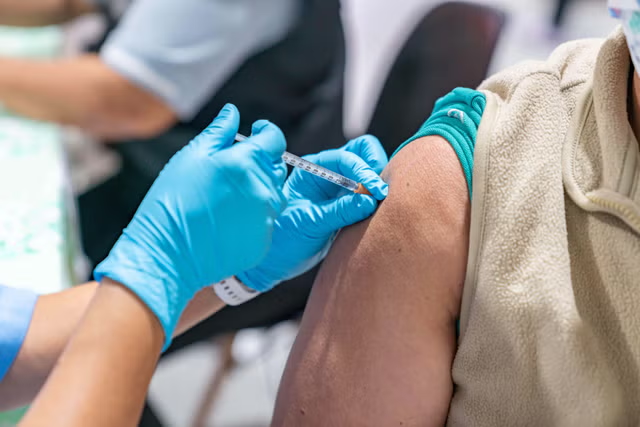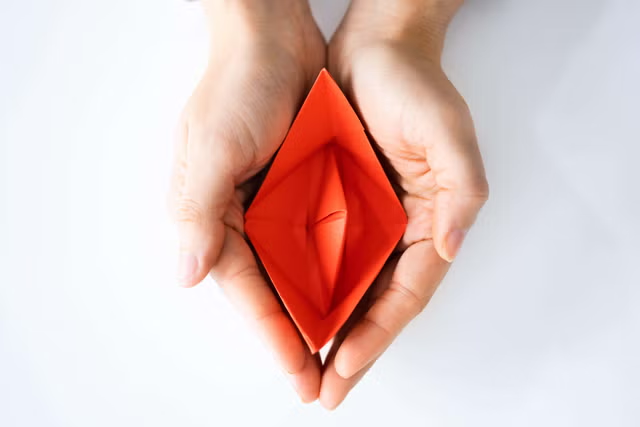A mother of twins was left "shocked" after a DNA test involving her two young sons confirmed a long-held suspicion.
Charlotte Hassan, 33, admits she was a "little nervous" when she first learned she was having twins nearly five years ago, and was repeatedly told throughout her pregnancy they weren't identical.
"No one in my family had twins until me," Hassan told Newsweek.
But the mom, from London, wasn't convinced they were fraternal after seeing how similar they looked, so she did a DNA test which confirmed what she had suspected—they were in fact identical.
There was something about the results of her pregnancy test that made her suspect it was twins from the start. "The lines were very dark, so I took a Clear Blue test to double check, and it said I was 3+ weeks, which was further along than I expected," she said. "So, I went on Google and it said if your test shows that you are further along than you could be then maybe it's because your HCG levels are high which could mean multiples."
Eager to find out, she booked herself an early scan that confirmed the presence of "two empty sacs." Two weeks later it was confirmed as a viable twin pregnancy.
"I asked if it was identical or non-identical (fraternal) twins and I was told it was non-identical as they have their own sac and their own placenta," she said. "Each scan I had this was reiterated and the midwives also stated non-identical to me throughout my entire pregnancy. So, I went through my pregnancy believing this to be true."
When her two sons, Roman and Theo, were born happy and healthy, Hassan was delighted. However, she couldn't help but notice something.
"They looked alike," she said, again chalking it up to the fact they were siblings. "People said to me a lot of newborns look alike and it's normal since they are brothers."
However, the similarities didn't disappear as the two boys grew up.
"Everyday me and my family would play guess who is who and often they would get mixed up," Hassan said. "I decided to do an Ancestry DNA test for myself and for my twins as I saw lots of people doing this and finding out more about their ancestry."
She added: "I then got notifications in my email that we had matches in the system. Naturally I matched the twins as sharing 50 percent DNA as their mother, but the twins also matched each other as genetically being 'self / identical twin' as they shared 99.9 percent DNA."
Hassan couldn't believe what she was reading. "I was so shocked," she said. "So, I decided to confirm with another DNA test." The results were the same.
So how did Hassan end up being told her twins were non-identical? Dr. Kassie Bollig, a reproductive endocrinologist from Reproductive Medicine Associates in Basking Ridge, New Jersey said, broke things down.
"There are two main concepts in twin pregnancies: firstly, Zygosity and secondly, the number of amniotic sacs and chorions, which later becomes the placenta," Bollig told Newsweek in an email. "Zygosity: Twin fetuses most commonly develop from the fertilization of two separate oocytes resulting in dizygotic or fraternal twins. In this way, dizygotic twins are just like any other pair of siblings."
Bollig added: "Less commonly, a single fertilized egg can divide and result in monozygotic or identical twins. Monozygotic twins, although essentially have the same genetic makeup, may not always appear identical due to processes like postzygotic mutations, differential lyonization (for X-linked traits in female fetus), or variability in physical expression of the same genetic disease. "
She said that the number of sacs and chorions present in a monozygotic pregnancy depends on when the division of the zygote, the single fertilized oocyte, occurs.
If it happens in the first four days of pregnancy, two embryos, two amnions, and two chorions develop. "This is a diamnionic, dichorionic twin pregnancy," Bollig said. "There are two sacs and the two placentas may be separate or fused."
If it occurs four to eight days after, two embryos, two amnions, and a shared chorion develop. "This results in a diamnionic, monochorionic twin pregnancy," she said.
Any development eight to 12 days on likely results in two embryos with a shared amnion and a shared chorion develop. "This is a monochorionic monoamnionic twin pregnancy," Bollig said, adding that anything beyond 12 days usually results in conjoined twins.
"Based on what I understand the patient to be saying, she had a test that confirmed her pregnancy was monozyotic (from one egg fertilized with one sperm)," Bollig wrote. "Because there were two amniotic sacs and two placentas, the zygote (fertilized egg) likely split very early (the first four days), resulting in a monozygotic, diamnionic, dichorionic twin pregnancy."
Though it came as a surprise to Hassan, she's since learned that her experience is far from an isolated case. Hassan posted in a video shared to TikTok under the handle @thehassantwins urging parents to "trust your gut" on something like this. She soon found herself inundated with responses from families who went through the same thing.
"If you read the comments there are so many 20 or 30 year old twins who have just discovered they are identical via DNA testing after believing their entire life they were non-identical," she said. "So many other new twin mothers were told the same as me and after DNA testing it proved their twins were in fact identical. This is mind-blowing to me."
Now four, Roman and Theo could not be more different personality wise though there are times when it can be a little tricky to tell them apart.
"If they have their back to me or from the side profile it is almost impossible to know who is who," Hassan admits. "But as a mother I can distinguish between the two."
If you have a family dilemma, let us know via life@newsweek.com. We can ask experts for advice, and your story could be featured on Newsweek.
Disclaimer: The copyright of this article belongs to the original author. Reposting this article is solely for the purpose of information dissemination and does not constitute any investment advice. If there is any infringement, please contact us immediately. We will make corrections or deletions as necessary. Thank you.



